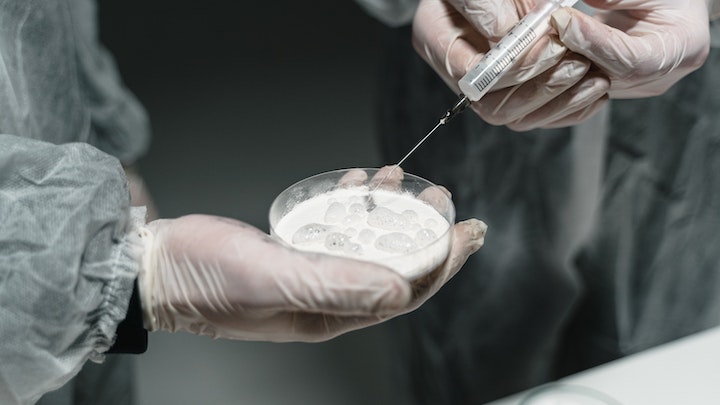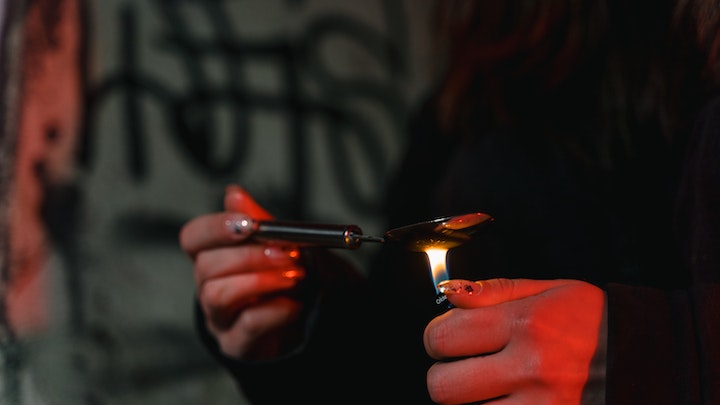Simply being born as a woman can make you more vulnerable to developing a cocaine addiction, scientists have found.
Women are also more likely to use cocaine at a younger age, use larger amounts of this substance and even suffer from a cocaine overdose. [1]
This is due to various factors including hormonal cycles and fluctuations, the reasons for cocaine use and the fact that most addiction treatment is based on the male brain and body.
Understanding the various reasons that determine why women are more likely to get hooked on cocaine can help us to develop more effective addiction treatment for both men and women, and potentially take steps to prevent addiction before it begins.

The symptoms of cocaine addiction are not gender-specific, and both men and women will display similar signs of dependency on this substance.
Cocaine can make you feel euphoric, confident and less sensitive to pain, so many women may use it as a recreational drug when they attend parties and other social events.
However, the addictive nature of cocaine can cause it to bleed over into their everyday life and begin to cause problems.
Common signs and symptoms of cocaine addiction in women include:
Many women do not recognise the signs of a cocaine addiction within themselves, and often will not seek help until the addiction becomes impossible to ignore.

Studies have shown that women are more susceptible to cocaine addiction than men, and are also more likely to overdose on this substance.
This article will examine the various reasons that make women more likely to become hooked on cocaine, allowing us to further understand the various ways that this drug is influenced by female hormones as well as how it affects the brain and body.

Women are beginning to use cocaine at a younger age than ever before, and many women start to experiment with this drug before men discover it.
A recent Irish study showed that cocaine use among young women has more than doubled over the past five years, with 4.5% of women aged 15-24 reporting recent use of this substance as opposed to 0.5% just five years ago. [2]
If someone begins using an illicit substance such as cocaine at a young age, they are more susceptible to developing a serious addiction in the future.
This is because their brain is likely still growing and forming pathways when they first begin using cocaine, so the substance becomes normalised and eventually, the brain and body can no longer function normally without it.
Cocaine has the ability to physically change the brain, which can be highly problematic if this substance is introduced while the brain is still forming.
It can lead to impairment in a number of different areas including cognitive, behavioural and developmental growth and may have after-effects that can continue for the remainder of their life.

Did you know that specific hormone found in women’s bodies can alter the effects of cocaine?
Studies have found that when a woman is ovulating, she is more susceptible to cocaine addiction and overdose. This is due to fluctuating hormones during this point of her cycle, as she will often use more cocaine on these days in order to experience the same effects. [3]
Additionally, there is a certain point in the hormonal cycle that causes women to produce a large amount of oestrogen which can alter the effects of cocaine.
When cocaine is ingested, the brain will flood the system with dopamine which causes that euphoric rush commonly associated with this substance.
An increased amount of oestrogen in the body can cause more dopamine to be released, and can also cause the dopamine to stay active for longer. This results in a longer and more pleasurable high, which can be extremely addictive for many women.
While men may use cocaine in a more predictable pattern, commonly on the weekends when they attend social events, women may adopt a more chaotic and unpredictable pattern depending on their hormonal cycle.
This is more likely to lead to addiction as women are frequently using cocaine more often than men, and can make them more susceptible to overdose if they take too much on any particular day due to the effects on their hormones.

While men often use cocaine for recreational purposes, women use this substance for a number of more complex reasons.
For example, women are more likely to use cocaine for the increased energy and alertness that it can provide.
This may help them to complete their daily tasks which may include work and/or family responsibilities such as cleaning the house or looking after demanding children.
As cocaine use can result in weight loss, some women will often use this substance to reduce their appetite and lose weight with little effort. This can be appealing due to the societal pressure placed on women to stay slim throughout their lives, even after childbirth.
These reasons for cocaine use can encourage women to use this drug on a daily and regular basis, to keep up with work and household tasks or to continue losing weight as opposed to the occasional recreational use at parties.
Of course, many women also rely on cocaine for the confidence-boosting and euphoric effects, which may help to make social events more pleasurable in the short term. [4]

Although approximately one-third of all addicts are women, research and studies based on addiction are primarily focused on men.
Many experts have examined the effects of cocaine and other drugs on men’s physical and psychological health, with a large number of studies centred around male rats.
As discussed above, women and men react differently to cocaine due to the specific hormones found in their bodies. Therefore, effective cocaine addiction treatment for women must involve the study of female hormones such as oestrogen and the role they play in addiction.
Cocaine addiction treatment may be less effective for women as it is primarily geared towards men and the specific challenges that they face during recovery.
However, with the rise of gender-focused studies and women-only rehab centres, this looks set to change in the near future.

When a woman develops a cocaine addiction, she is putting herself at risk of several chronic long-term effects that can impact her physical and mental health.
They include an increased risk of heart attack and stroke, bleeding on the brain and an inflamed and potentially disfigured nose. [5]
Even after she recovers, these effects may persist and have a significant impact on her overall well-being.
Common long-term effects of cocaine addiction on women include:
While these issues can occur despite the length of the dependency, seeking effective treatment as quickly as possible can help to mitigate the long-term effects of a cocaine addiction and allow women to emerge relatively unscathed in many cases.

Currently, there is little difference between the treatment of both women and men during cocaine addiction rehab.
Both will begin with a cocaine detox, which is essentially stopping their cocaine use under medical supervision.
There is usually no need for an assisted cocaine detox as this substance is not physically addictive, but it is recommended that this phase of treatment is undertaken within a rehab clinic to be on the safe side.
Next, women will begin counselling to help manage the psychological cravings as well as any behaviour and lifestyle changes that need to be made. They may receive cognitive behavioural therapy (CBT), dialectical behaviour therapy (DBT) as well as various holistic therapeutic treatments to help with their recovery.
Finally, women will be assisted in creating a relapse prevention plan with the help of their counsellor, filled with techniques and information to help them avoid relapse in the future.
It is also recommended that women recovering from a cocaine addiction access local aftercare services such as support groups and additional counselling after rehab, to help maintain their recovery and meet other people who share similar experiences.
[1] https://www.theguardian.com/uk/2001/jul/15/research.drugsandalcohol
[4] https://nida.nih.gov/publications/drugfacts/substance-use-in-women
[5] https://nida.nih.gov/publications/research-reports/cocaine/what-are-long-term-effects-cocaine-use